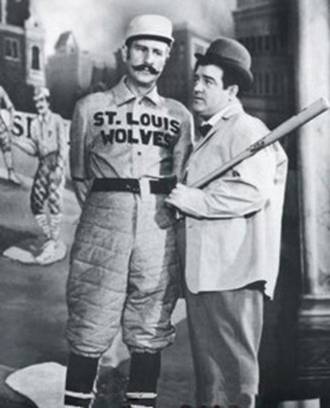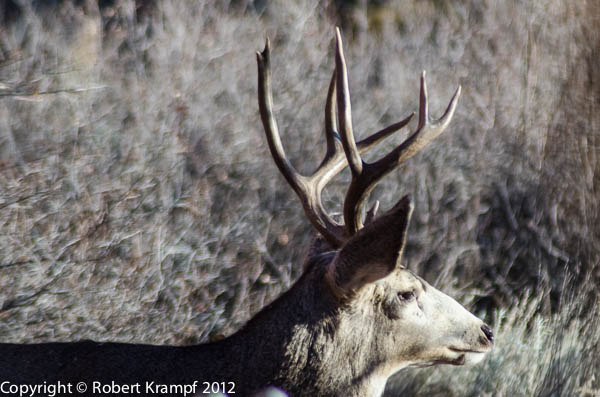
While I was writing this post, I heard that Bill Nye and Ken Ham are planning to have a debate about evolution and creation. While it could be an interesting conversation, I suspect that it will suffer from the same communication problems that afflict most of these debates.
Have you ever heard the brilliant comedy routine, “Who’s on first?” by Bud Abbott and Lou Costello? If not, you should listen to it before you continue reading. It is a hilarious example of two people trying to have a conversation when they have very different definitions for the words they are using. To Abbott, the team manager, “Who”, “What”, and “I Don’t Know” are the nicknames of players on the team. Costello uses those same words as questions and statements. The difference in those simple definitions leads them to incredible frustration; each convinced that the other must be insane.
While this is a hilarious comedy routine, it also serves as a beautiful example of what usually happens when scientists and non-scientists get into discussions about controversial topics such as evolution, climate change, genetically modified organisms, vaccines, etc. They often use the very same words, while using very different definitions for those words.
An excellent example of that is evolution. I have lurked on the sidelines of many creation-evolution discussions and participated in quite a few. Every time I am reminded of Abbott and Costello. Often, I can almost hear, “So you think Evolution is on second?” “No, Evolution is on first. Theory is on second.” The main difference is that everyone seems to avoid talking about the third baseman.
Evolution is on first.
There are many words with scientific meanings that are very different from the meanings used in everyday conversations. To see what I mean, look up the physics definitions of work, energy, and power. What you find will probably be very different from what you mean when you use those words in everyday conversation (unless you are a physics teacher.)
The situation is even worse for the word “evolution” because that word means several very different things to scientists, and there are other, even more different meanings when it is used in nonscientific conversations.
On a very generic level, the word evolution means change over time. Using that definition, we talk about the evolution of personal computers towards smaller, faster, and more powerful devices.
Since most of the arguments about evolution fall within the science of biology, lets look at the biological definitions. Within the science of biology, the word evolution can refer to:
- A change in allele frequency within a population from generation to generation.
- Natural selection.
- Descent from a common ancestor.
If all the participants in a conversation are not using the same definitions, it can easily lead to strong emotions and misunderstandings. Unless the participants in a conversation can agree on which meaning they are using, the conversation is almost certainly doomed to becoming an Abbot and Costello routine. So how do we fix that?
No more Evolution!
How wonderful it would be to throw away the word “evolution,” and invent new words for each of the different meanings we assign to “evolution.” That simple step would bring many evolution-creation arguments to a screeching halt, with both sides suddenly saying, “Well of course, I agree with that, but that is not what I meant.”
For an example, lets start with the definition for the process of evolution. You can find it in most biology textbooks.
A change in allele frequency within a population from generation to generation.
What in the world does that mean?
Everything about your physical body is controlled by your genes. Genes determine your hair color, hair texture, eye color, height, susceptibility to many diseases, blood type, etc. Sometimes a trait is controlled by a single gene, and sometimes by several working together. An allele is a variation of a gene. If we look at a single gene for blood type, it may be an allele for type A blood, or an allele for type B, or an allele for type O. If something caused more children in a population to be born with the allele for type O blood, that would fit the definition for the process of evolution.

Notice that one side of this buck’s antlers has more points than the other.
We are seeing a wonderful example of that occurring around our house in Utah. We get lots of mule deer in the winter. While most of them have antlers that are fairly symmetrical, some of them have antlers where one side has more points than the other. This is a genetic trait, carried by a combination of alleles for symmetrical or asymmetrical antlers. While these variations have been around for a very long time, symmetrical antlers have been by far the most common.
That is changing. Every year, more and more mule deer are showing up in our area with asymmetrical antlers. Why? Because hunters (the major predator of mule deer at this time) prefer to shoot deer that have pretty, symmetrical antlers. They will often decide not to shoot a buck with “ugly antlers”, waiting for a nice trophy to mount on the wall. As a result, there are more bucks with asymmetrical antlers around at breeding time. Since this is a genetic trait, more fathers with unbalanced antlers means more offspring are born with the allele for asymmetrical antlers. The frequency of the asymmetrical alleles has changed.
Now take a minute, and think about that. Do you agree there could be a change in the number of deer in the next generation that will carry the allele for unbalanced antlers?
If you agree, then you accept the process of evolution. No, I don’t! Yes, you do! That is NOT what evolution means! Yes, it is! Evolution is on second! No, Evolution is on first! Theory is on second. Hey, Abbott!
Do you see where I am going with this? Everything is nice and rational until that horrid word comes into the conversation. Once you mention the E-word, emotions often take the place of rational thought on both sides of the conversation. The focus shifts from communicating information to winning an argument.
Look at that definition again.
A change in allele frequency within a population from generation to generation.
Notice that there is nothing in this definition about mutation, new species, apes, the origins of life, the age of the Earth, creators, etc. Notice that this is not a theory. Theories explain why something happens. This is a simple description of a common, well documented process that causes bacteria to become resistant to antibiotics, lets breeders selectively produce better crops, and causes deer to wind up with lopsided antlers. If it did not have the E-word tied to it, it would just be another part of the science of genetics. But to scientists, this is the process of evolution. We can test it in the laboratory and see it happening with the deer in my back yard.
Now imagine a conversation where one person is talking about evolution (A change in allele frequency within a population from generation to generation.) while the other person is talking about evolution (All life is descended from a common ancestor.)
In that imaginary conversation, who would be right? Both people would be right from their own perspective, and wrong from the other person’s perspective. Unless they can agree which definition they are talking about, they might as well be arguing about who is on first.
Things get even worse when you try using a non-scientific definition of evolution in a discussion with a scientist. If you are discussing the science of evolution, you should stick with the scientific definitions.
Now, I can hear some of you complaining that I am letting the scientists pick the definitions. When you agree on a definition, you are not agreeing that the concept is correct. Instead, you are agreeing on what a word means.

If we were talking about food, we would use the definitions that chefs use. Imagine that a chef offers me some poached eggs. I yell at a chef because I believe that poaching eggs (stealing eggs) is wrong, and he yells at me because he believes that poaching eggs (gently simmering eggs in water) is wonderful. We are both talking about eggs that have been poached, but our definitions are so different that the conversation is just as ridiculous as the “Who’s on first?” routine. If you are talking about cooking, you should use cooking related definitions.
If we talk about legal contracts, we use legal definitions. Do you think you would be successful at convincing a judge to use your own, different definitions for the terms in a contract?
Likewise, when you are discussing the science of biological evolution, and you want to spend your time actually talking about real issues, you should stick with accepted scientific definitions. At the very least, you should be sure that you are both using the same definitions. it won't resolve all of your differences, but you will save the time you would have spent going in circles with different definitions.
If I could offer one bit of advice to Mr. Nye and Mr. Ham for their debate, I would strongly suggest that they agree on a list of approved definitions before the debate. That would let them spend what time they have discussing real issues, instead of arguing about who’s on first.
